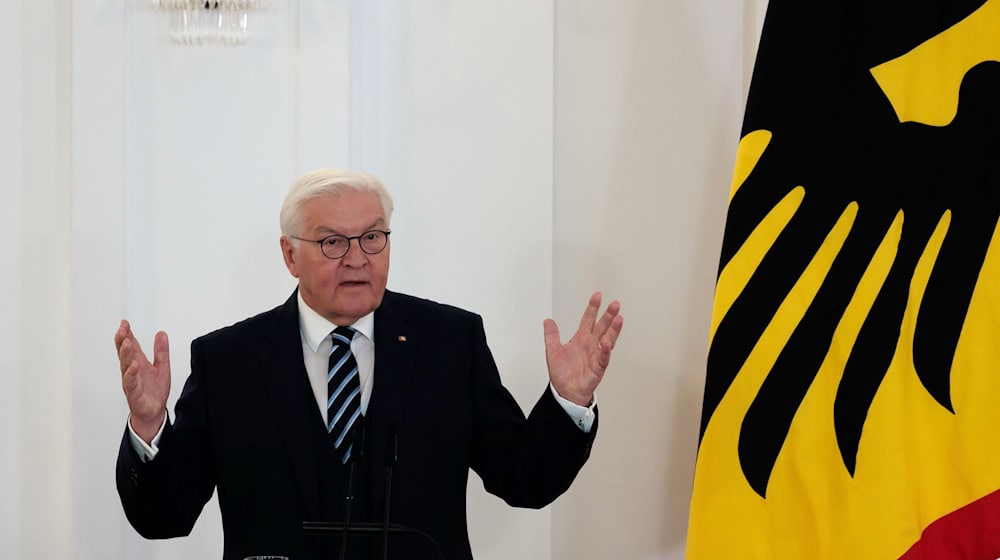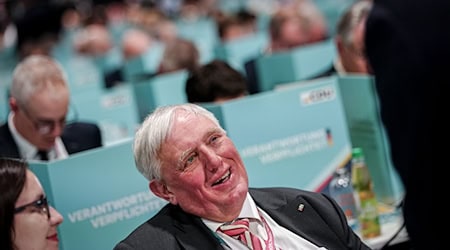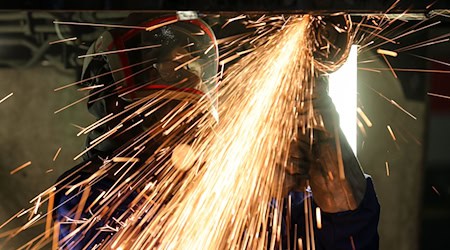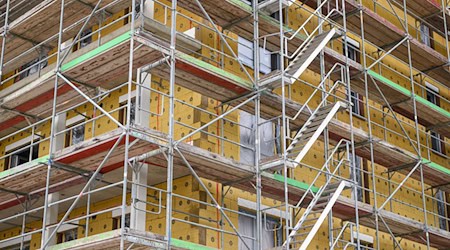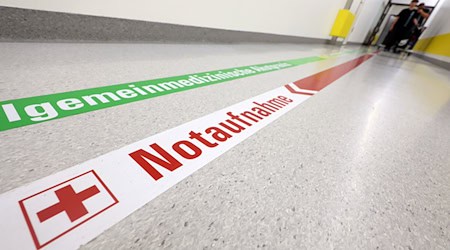35 years after German reunification, Federal President Frank-Walter Steinmeier has called on everyone in East and West to stand protectively in front of democracy. He was concerned to see that "the political center not only, but even more so in the East of our country has less and less support", said the head of state in Berlin. "Let us not allow our democracy to be further damaged. Let's stand up to it."
At the time of reunification 35 years ago, there was an exuberant atmosphere, but that is far from the case today, said Steinmeier. "Many people are worried, and these worries deserve to be taken seriously." He also referred to the hardships of the upheaval in East Germany, which continue to have an impact today.
"But shouldn't we pause today, on the occasion of 35 years of German reunification, and reflect on what we have achieved in these 35 years?" asked Steinmeier. "The united Germany is a strong country in the middle of Europe, a respected partner in the world."
Bad mood
On October 3, 1990, the then two German states of the Federal Republic of Germany and the German Democratic Republic united under the rules of the West German Basic Law - just under a year after the peaceful revolution in the GDR. However, new surveys show that the feeling of togetherness is on the decline.
In a representative YouGov survey of over 2,000 people across Germany, 30 percent said that East and West Germans are more divided than united. Only 16 percent believe that similarities outweigh differences. According to the survey, 40 percent think that similarities and differences balance each other out, while 13 percent are undecided on this question.
According to YouGov, 43 percent of the East Germans surveyed said that East and West Germans are more divided than united. Only 11% believe that the similarities outweigh the differences. In comparison: According to YouGov, 34% of East Germans believed that differences outweighed similarities in 2019 - today, this figure is 9 percentage points higher.
Economic divide
East German Commissioner Elisabeth Kaiser believes that this perceived divide is also due to actual differences in living conditions - including in terms of wealth, wages and participation in management positions. In an interview with the Deutsche Presse-Agentur, the SPD politician called for a redistribution of wealth - be it through wealth and inheritance tax, new approaches such as a "basic inheritance" - i.e. a kind of state-financed start-up capital - or the planned early retirement pension. This is intended as a savings plan with state support from childhood.
"35 years after German reunification, we still have encrusted wealth structures in Germany," said Kaiser. "It's not just East-West, but there really is a huge gap between rich and poor." The question is therefore: "How can we achieve equality of wealth?"
In her view, an economic divide also depresses the mood. "Of course, this also has an impact on people, especially in times of crisis," Kaiser told dpa.
East Germany has not caught up
A study by the German Institute for Economic Research shows that the eastern German states have caught up enormously compared to 1990 - but they have not caught up. According to the DIW report, productivity in eastern Germany is now around 90 percent of the level in the west. Economically, the eastern German states have reached the level of financially weak western German states such as Saarland.
The dividing line therefore runs less between east and west than between financially weak and financially strong regions and between urban and rural areas, the economic researchers conclude. They see difficulties in demographics: since reunification, the East German states have lost two million people through emigration.
Future Center to help
Kaiser told dpa that in order to improve the mood between East and West, it is important to know the perspective of the other and to start a conversation. The Future Center in Halle an der Saale would be a place for this. The planned building will certainly not be finished for a few years. However, the program will already be held in provisional rooms. "This should really pick up speed next year," said Kaiser.
With a view to the possible electoral success of the AfD in eastern German states such as Saxony-Anhalt and Mecklenburg-Western Pomerania, the SPD politician said: "Of course, I am also very concerned about the possibility of a party coming into responsibility that is, in my opinion, right-wing extremist."
However, it is important "that we don't just stand like rabbits in front of a snake". The government must take action, analyze the reasons for the distrust in political parties and manage expectations, i.e. not promise too much and defend compromises.
Copyright 2025, dpa (www.dpa.de). All rights reserved

